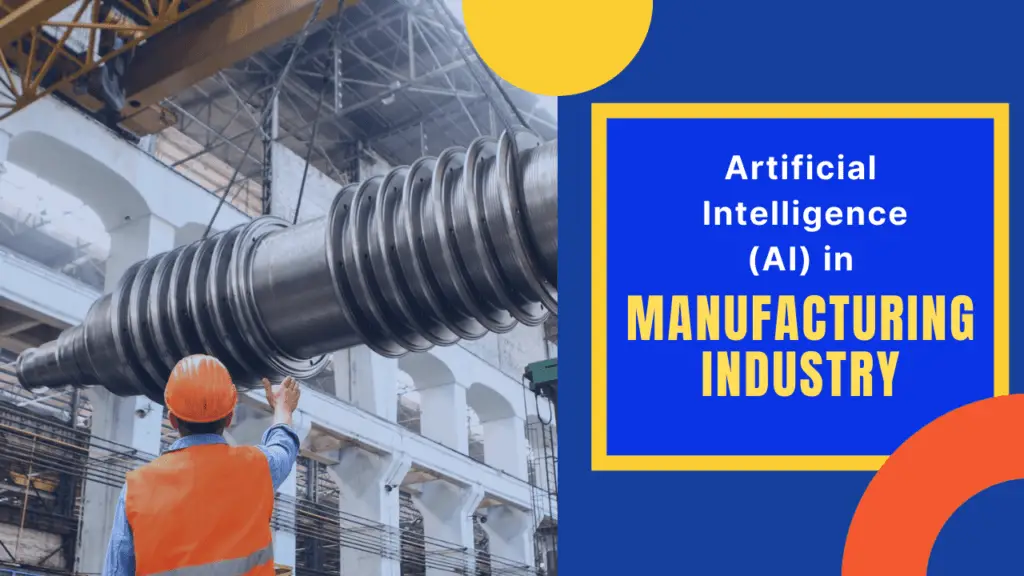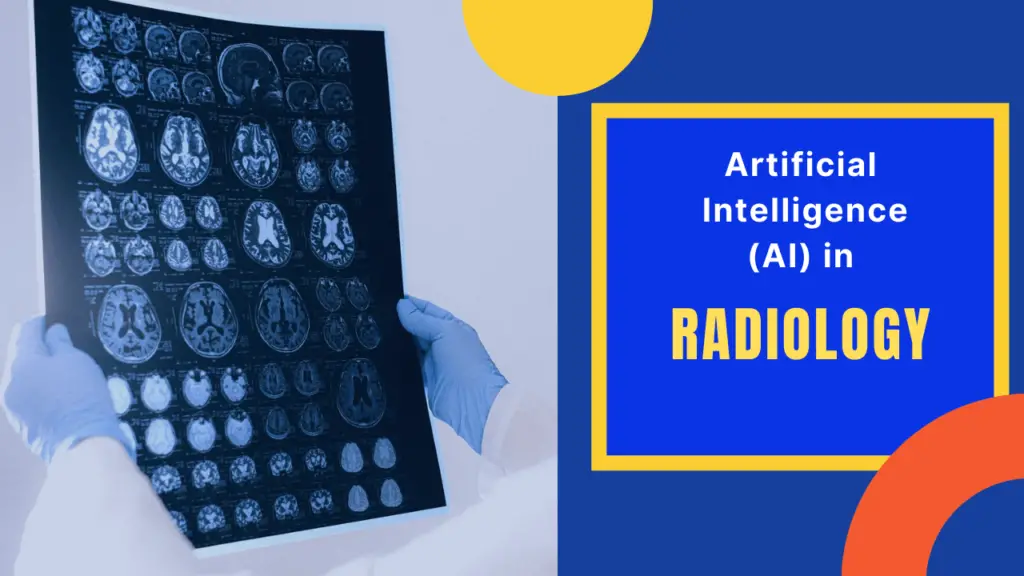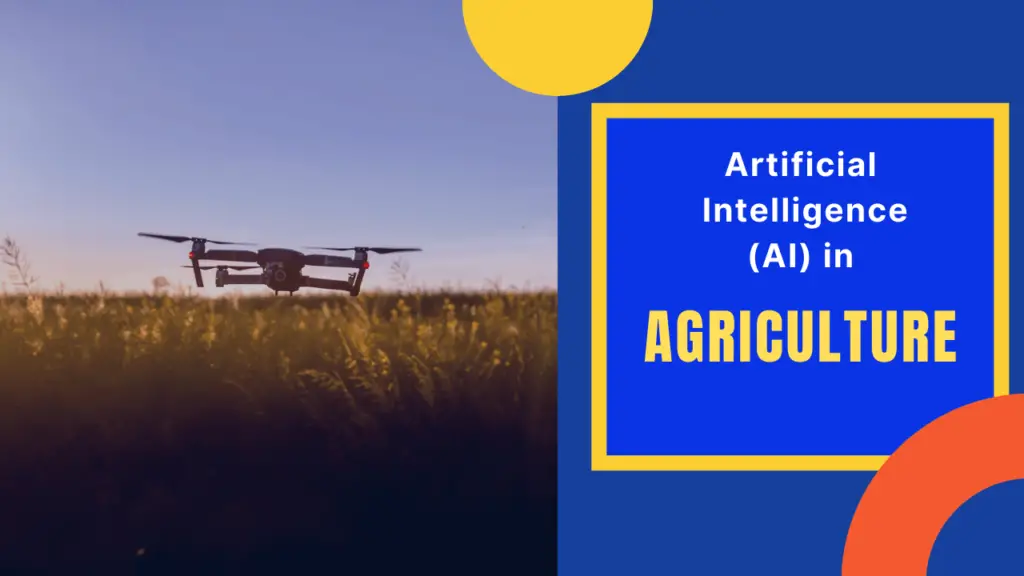As of 2021, many industries are growing exponentially with the help of artificial intelligence. Whether it is manufacturers, traders, and service providers. In this manufacturing world, new challenges or problems occur on daily basis such as machine failures, production halts or delays, or defective product delivery. These problems directly affect the efficiency of the production of the company which results in huge losses. With the help of artificial intelligence, the manufacturing industry is improving its operational efficiency. New products with more personalized approaches are launching every day. In manufacturing operations, machine maintenance and quality are leading the way in artificial intelligence projects.

According to Boston Consulting Group, 14% of AI-powered companies successfully increase their sales and growth in this global economic crisis. AI-Powered companies are investing a lot of money in this technology because they think that AI is the future. Blending and mixing human experience, data insights, and AI techniques, discoveries are happening all over the world in the field of science and technology. In the manufacturing world, AI is helping to reduce operational and maintenance costs, predicting the future failure of machines if protocols are neglected, multiple production shifts data can be analyzed in real-time in seconds with the help of machine learning algorithms.
Top 10 Applications of AI in the Manufacturing Industry
There are so many applications that are powered by artificial intelligence. Some are listed below
Digital Twins:
It is a virtual representation of products, factories, or services. With the help of sensors, cameras, and other data collection methods these representations match the physical attributes of the real-world product. Digital twins allow businesses and manufacturers to better understand the products and changes can be made accordingly to make the product even better.
New Product Development:
Developing new products requires a lot of time, money, prototypes, data analysis, and assessment under different conditions. AI allows companies to cut time-to-market, which delivers products faster. There are algorithms by which the development of a product takes less time and it is environmentally friendly while reducing costs to their minimum.
Generative Design Customization:
Generative design and customization is a process that includes programs to achieve the specific criteria related to the product. NLP in AI is allowing the companies to interact with the customer to know their desires related to the product more personally. Designers and engineers are using AI techniques in parameters such as materials, manufacturing methods, and cost reduction for generating unique customize design software. This software then allows the developers to make such prototypes of the product. Then comparison with previous data takes place to check more changes are required or not. By using this tool, designers can generate thousands of designs for a single product.
Shop Floor performance
The production process and manufacturing process can be monitored and analyzed by AI tools for quality checking. Performance of machine can also be tested i.e. it is producing a low-quality product or good quality product.
Logistics and Process Optimization:
AI technology is making the supply chain sector much more efficient. One can track the whole record of goods from their origin to their final destination. It allows the company to automate the recoupment process. The delivery of products timely and accurately is the main concern of the manufacturing company. AI-powered tools use process mining to identify the bottleneck and hurdles then eliminate them.
Predictive Maintenance:
Artificial intelligence help manufacturers forecast the failure of the machine or their expected time of maintenance required. This allows them to repair or perform maintenance of the machine at a scheduled time. This increases the efficiency of machines while reducing the cost of machine failure and all credit goes to AI-Powered predictive maintenance.
Price Forecasting of Raw material
The forecasting of prices of goods has always been a challenge for manufacturers. To compete in the market, manufacturers use AI-powered tools to forecast the prices of goods that are unstable. KANTIFY is the software which is used to predict the prices of material more accurately and also it can improve its working by analyzing and comparing with previous prices.
Robotics:
With the invention of robots, every sector in every field is revolutionized and changed. At this time, every industry is using manufacturing robots for production, manufacturing, packaging, and delivering, for maintenance, welding, assembling, inspection, casting, and many more. With the intervention of robots, human error and interaction is getting lesser and lesser every day saving a lot of time and money. Because of this, the efficiency and production rate both increase very highly.
There is another type called Cobots which work alongside humans to complete tasks that are not fully automated. In these robots, machine vision helps the robot to achieve precise functionality and mobility in complex tasks.
Quality Assurance:
Such standards are defined for every product. The quality assurance sector helps the manufacturers to achieve those standards and with the AI-powered tools, this will achieve in no time. AI systems are installed on production lines and are integrated with networks, if the end-product is of low quality or not achieving the target, AI systems trigger an alert to workers so that they can make adjustments to achieve a high-quality end-product.
Dark Factories:
Those factories in which no human labor is involved are called Dark Factories. This is a new concept for now and only a small number of factories working on this concept with a 100% successful rate. By the time, these factories will grow in number benefitting the manufacturers in cost and time saving, to produce better quality products.
Safety and Fast Decision making
In industries, every year 3000+ injuries and 10+ casualties are reported throughout the world. With the involvement of robots, these high-risk jobs can minimize casualties and injuries by reducing accidents. Fast decision-making is very necessary for manufacturing because massive production can be halt with one false decision. To make fast decisions, one should be very accurate in terms of data analyzing and processing. Humans cannot perform such tasks in a short period. AI-powered apps allow manufacturers to collect a large volume of data and integrate it into real-time analytics.
Conclusion:
29% of AI utilization in manufacturing is for the maintenance of machinery and production assets. According to Capgemini’s research, the use of AI improved maintenance by 29% and the quality of products by 27%. Tools powered by AI are influencing the industries and these industries are becoming dependent on AI more and more. The ultimate goal of the company is to make the perfect product with less money and deliver in less time. With the help of Artificial intelligence, companies will achieve this goal one day.


